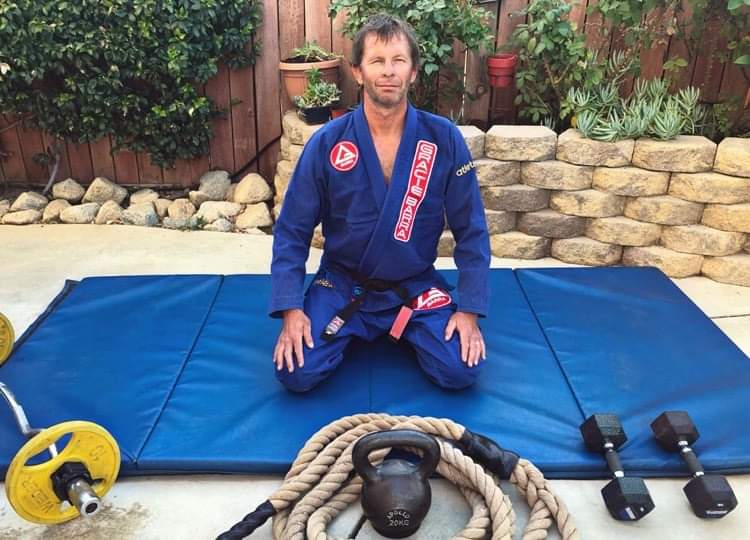Fitness for Jiu-jistu

Meet GB Blackbelt and personal fitness trainer Prof. Pshemek Drabczynski. Pshemek trains out of Gracie Barra HQ in California and has an extensive kickboxing background in addition to his 20+ years training Jiu-Jitsu.
ㅤ
Prof. Pshemek has been training martial arts for over 20 years and is an expert in physical training as a certified fitness trainer.
ㅤ
A side note is that the very first Jiu-Jitsu class this author was taught by Prof. Pshemek (as a blue belt) way back in 1997! That is a lot of experience.
ㅤ
This week on GB Online Prof. Pshemek answers many fitness for bjj questions commonly asked by Jiu-Jitsu students.
ㅤ
GB: Let’s start by talking about the type(s) of fitness required for a bjj athlete. What areas of fitness are most important for bjj? How might the fitness needed for bjj be different than for other sports?
ㅤ
Pshemek: When it comes to fitness for BJJ I believe that anything that is a body weight type of movement with balance oriented can help BJJ:
1. Gymnastics
2. Yoga
3. Surfing
4. Swimming
5. Kickboxing
The areas of fitness that emphasize correct breathing with muscular endurance as well as quality of movement as BJJ requires precision.
ㅤ
GB: Many people who roll the first several times quickly become exhausted – even though they appear to be physically fit. Are they getting fatigued because they have the wrong kind of fitness for bjj or are there other factors?
ㅤ
Pshemek: People who roll first time have no idea how to move correctly, how to breathe and pace themselves, also luck of knowledge of techniques sets them off into the panic mode.
ㅤ
GB: Is rolling enough or do bjj students need to do additional physical conditioning outside of the GB school?
ㅤ
Pshemek: This depends if you compete or just do BJJ for self defense and fitness.
The age is big factor, if you are in your twenties you can roll 5-6 days a week, as you get older recovery time increases and your optimal rolling time could be 2-3 times per week.
If you compete you should do some fundamental weight lifting, especially movements like squats deadlifts and cleans, something to build up explosiveness. If you don’t compete just rolling is enough.
ㅤ
GB: If a bjj athlete is looking to do something to help their bjj, which activity produces the best results? Ex. Yoga, running, kettle bells, striking training
ㅤ
Pshemek: If you are a guard player Yoga is the best. If you are take down artist then kettle bells, sprints, pull ups, box jumps will help with explosiveness.
Above all if you are a serious martial artist you should work on your striking skills which is a part of self-defense in jujitsu as well.
ㅤ
GB: What is the most common physical training mistake you see bjj students make in their extra physical conditioning? What advice do you have for the average bjj student who wants to get more fit for the purpose of improving their bjj performance?
ㅤ
Pshemek: The most common mistake BJJ practitioners make, especially in the early stages of training, is jumping too early into weight training. By too early, I mean before they learn fundamental BJJ movements associated with a fundamental techniques for example bridging, shrimping, scooting, rolling properly forward and backward, break falls in all directions, technical lifts, pivoting on your back etc.
So my advice for the average practitioner would be to learn fundamental movements corresponding to fundamental techniques.
When it comes to strength training master your pushups, pull ups, squats, lunges and burpees/sprawls.
I must also ad that a heavy weight training is very taxing on your central nervous system, it means that your learning ability during recovery time will be compromised.
ㅤ
GB: If a GB student wants to know more about your approach to physical conditioning for bjj, how can they find you?
ㅤ
Pshemek: Anyone interested to find out more about optimal training for BJJ, please me contact via email pshemek66@gmail.com also check my website www.besthometrainer.com
ㅤ
If you are a Gracie Barra student and have a question about anything Jiu-Jitsu related, please send us your question as we love to hear from friends around the GB Network.
ㅤ
ㅤ
Credits: Mark Mullen
Gracie Barra Black belt based in Asia
